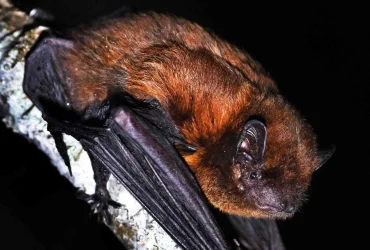Volume 9 | Number 2 | November 2020
 v9i2.227
v9i2.227ISSN: 1800-427X (printed)
eISSN: 1800-427X (online)
DOI:10.47605/tapro.v9i2.227
Published date: 28 November 2020
Pp. 133–135
EDITORIAL: Cladonotus bhaskari: a call for improving ethical standards in taxonomic journals
A.A.Thasun Amarasinghe
Co-editor-in-chief: Taprobanica, the journal of Asian Biodiversity
We are in a period of mass extinctions, when many species of animals, plants and other organisms are disappearing through direct or indirect human activities. Yet, the declining numbers of expert taxonomists represents a barrier to identifying, studying and protecting threatened species. This is especially true in developing countries such as Sri Lanka. How can we enjoy and protect something if we don‘t know it is out there to enjoy and protect? As urgent as the description of newly discovered species is, such descriptions must necessarily take place in the context not only of the International Code of Zoological Nomenclature (ICZN) but also a sound ethical framework including adherence to local laws. Even urgently needed taxonomic research cannot be justified if it breaches ethical guidelines or the laws of the countries in which the organisms of interest originate, as the following cases illustrate.
eISSN: 1800-427X (online)
DOI:10.47605/tapro.v9i2.227
Published date: 28 November 2020
Pp. 133–135
EDITORIAL: Cladonotus bhaskari: a call for improving ethical standards in taxonomic journals
A.A.Thasun Amarasinghe
Co-editor-in-chief: Taprobanica, the journal of Asian Biodiversity
We are in a period of mass extinctions, when many species of animals, plants and other organisms are disappearing through direct or indirect human activities. Yet, the declining numbers of expert taxonomists represents a barrier to identifying, studying and protecting threatened species. This is especially true in developing countries such as Sri Lanka. How can we enjoy and protect something if we don‘t know it is out there to enjoy and protect? As urgent as the description of newly discovered species is, such descriptions must necessarily take place in the context not only of the International Code of Zoological Nomenclature (ICZN) but also a sound ethical framework including adherence to local laws. Even urgently needed taxonomic research cannot be justified if it breaches ethical guidelines or the laws of the countries in which the organisms of interest originate, as the following cases illustrate.
Hubungi Kami
The ultimate aim of the journal is to provide an effective medium for communication of the latest and best scientific information.
Copyright © 2020 Taprobanica. All Rights Reserved
Jasa Pembuatan Website by IKT




